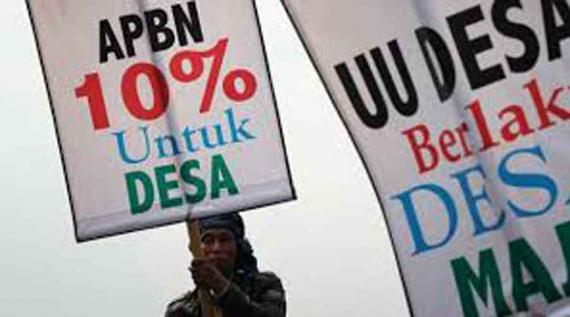
It has been three years since Village Law was applied. However, the implementation of the Village Law in various regions in Indonesia still faces challenges, so that the breakthrough of the administration of President Joko Widodo to develop Indonesia from the villages has not been maximized and requires serious attention.
GUSTI EKA, Pontianak
IN A PERIOD of three years, the implementation of the Village Law in West Kalimantan describes various dynamics. There are some are which are quite advanced because the regency government is responsive in facilitating and is quick in assigning various derivative policies of the Village Law. However, most of the regions have not been able to move forward since the role of the regency government is not optimal.
Director of Gemawan Association, Laili Khairnur, hopes that the local governments do not consider the Village Law as a burden. “To me, if it is truly actualized, the job of the regencies will be very easy because through the Village Law all of the villages will keep being empowered.” she said after a press conference seminar and workshop at Grand Mahkota Hotel, Friday morning (31/3).
Laili considered that many regional heads discussed the Village Law during Pilkada (Local Leaders Election). “Everyone is talking about village. One village, 1 billion (IDR 1 billion). Yet, when it comes to the realization, there are still many problems occur.” she explained.
The seminar and workshop conducted by Gemawan for three days reflected the three years of the running of Village Law in West Kalimantan. There were village representatives from 12 regencies in West Kalimantan who attended this reflection.
In this workshop, 11 recommendations of village reform acceleration have been formulated, one of which to urge the Central Government to immediately accommodate the affairs of village development acceleration through a single ministry. Besides, it also requires local governments both at the provincial and regency levels who are responsive and quickly make policies, to make policies to facilitate and to supervise villages in order to be able to implement the paradigm of building villages.
In addition, they urge the regency government to set a derivative of village law policies in the form of regulations, to ensure women’s representation in the village government, to ensure policies for the support to welfare and performance (including intensive and disincentive) to the village government and BPD (Regional-owned bank).
Not only that, the other points are in the form of capacity building of village heads and village officials including BPD, and then encouraging a populist leadership style, as well as developing Bumdes as a new economy in the village.
The other three points are ensuring the expansion of community participation and initiative as one of the key elements in formulating the plan, implementation and accountability of village development programs, ensuring that the government administration and village finance management in transparent, participatory and accountable manner, and ensuring the emergence of new policies oriented to welfare and care for vulnerable groups such as the poor, women, children, and people with disabilities.
The recommendations, Laili said, will be conveyed to the ministry of Villages, Development of Disadvantaged Regions, and Transmigration. Not only that, her party will also write to the regional heads in West Kalimantan. “Particularly regencies which, for example, are still slow to respond to the realization of this Village Law,” she said.
Laili also advised that the village governance should be accountable, participatory and transparent. “The village heads have to do their work based on the principles of good village governance, for example, the information on village funds is published in mosques, so that people can see the details of their work and people’s aspirations must be heard.” she explained. (*)
Source: http://www.pontianakpost.co.id/lahirkan-sebelas-rekomendasi-untuk-kemendes
